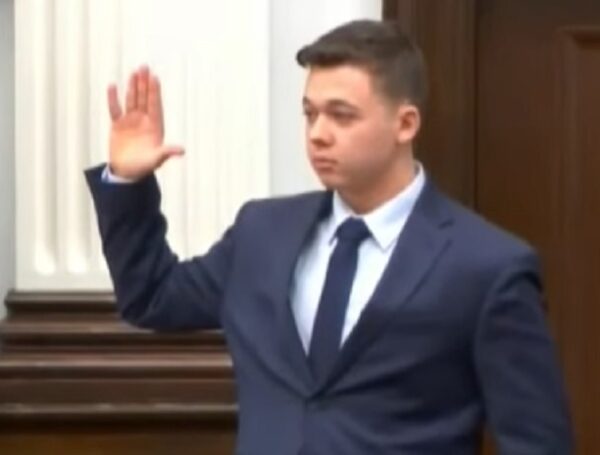
I’ll defer to the jury outcome with the Kyle Rittenhouse case and even if there is a verdict by the time this goes to print, appeals are always a possibility, and the lessons learned will be cited for years to come. But in the current era where prosecution is often persecution when it comes to criminally charging police officers defending themselves and others, the Rittenhouse case has some parallels.
One ring of familiarity is the critique of Rittenhouse for being white, for being someplace he shouldn’t have been, for carrying a scary rifle, and for espousing a sense of responsibility to step into chaos and defend law and order. Now, before I get accused of advocating Rittenhouse for sainthood, we can acknowledge that this teenager may not have thought this whole adventure through, and that in advancing his agenda bent the law on possessing the weapon he took to Wisconsin from Illinois. Well, he didn’t take it – his mother drove him there to drop him off, which could be informative as we wonder what was on Kyle’s mind.
Commentator Issac Bailey drags out the tired vocabulary of defending criminality when it comes to riots. That’s a word Bailey used in the title of his book “Why Didn’t We Riot: a Black Man in Trumpland”, but doesn’t apply to the “protestors”. Although he explains that his book title doesn’t mean “… looting, I don’t mean actually breaking out windows, like, all those other things”. Of course not. But as we watch the clear stalking and attack on Rittenhouse with a backdrop of business in flames and police in armored vehicles, it seems very charitable to use the word protestors.
The race card is well played in the essay (which is Bailey’s area of scholarship, so I get it) as the event is described in an NBC news website editorial as Rittenhouse “shooting three people (killing two of them) who were protesting the police shooting of yet another Black man, Jacob Blake, in Kenosha, Wisconsin, last summer. The protest followed many George Floyd-inspired ones that erupted across the world calling for police accountability and justice for Black lives. White allies, like the ones Rittenhouse shot, were among the protesters. Rittenhouse has pleaded not guilty.”
Rittenhouse, apparently public enemy # 1 of rioting protestors, had to be measured not as a zealous young person (misguided or not) but as a pawn of racists for daring to interfere with the burning down of Kenosha, Wisconsin because of “yet another” police shooting. (We need not rehash the Jacob Blake shooting in which a man armed with a knife was confronted by police officers who attempted to arrest Blake as he walked away from officers and attempted to enter a vehicle. Blake’s attorney’s narrative was that Blake was trying to “disengage by walking away from a violent attack from aggressive police officers”, which is lawyer speak meaning “my client was resisting arrest, was armed with a knife, and trying to escape while holding occupants of a vehicle hostage”. No charges on the officers after a federal investigation.)
So the purported victims shot by Rittenhouse had to be painted as morally superior and exempt from blame because they were there to protest in unity with blacks even though white. Bailey goes on to claim that Rittenhouse will either be a martyr to the white cause or a hero to the white cause. I don’t know what white supremacists and sympathizers think of Rittenhouse, or what place he may have in the panoply of racist history. I don’t think he’s a symbol of anything but the frustration many Americans felt watching unbridled rioting. I don’t defend his decision to go big or go home arriving in Kenosha. I don’t pretend to understand the intensity of his feeling that law and order had collapsed, that the city where he had worked was on fire, and somebody should do something, but I do understand the frustration that has plagued many good citizens who wondered the same things.
A great deal of the prosecution’s case and purpose was to build Rittenhouse into a young man with a propensity for the excitement of killing. Did he play video games? Did he like guns? Had he ever thought about punishing criminals? Had he ever been in a fight? This appears to be a vestige of our love for prosecuting hate crimes – that someone was thinking what they shouldn’t be thinking when they engaged in behavior that was criminal.
A careful study of how Rittenhouse was portrayed reveals how prosecutors can let hot button political issues guide charging decisions. Paint the accused as provocative, hateful, and injecting themselves where they shouldn’t have been. If that sounds familiar, watch the next prosecution of an officer using justifiable deadly force and see the parallels.